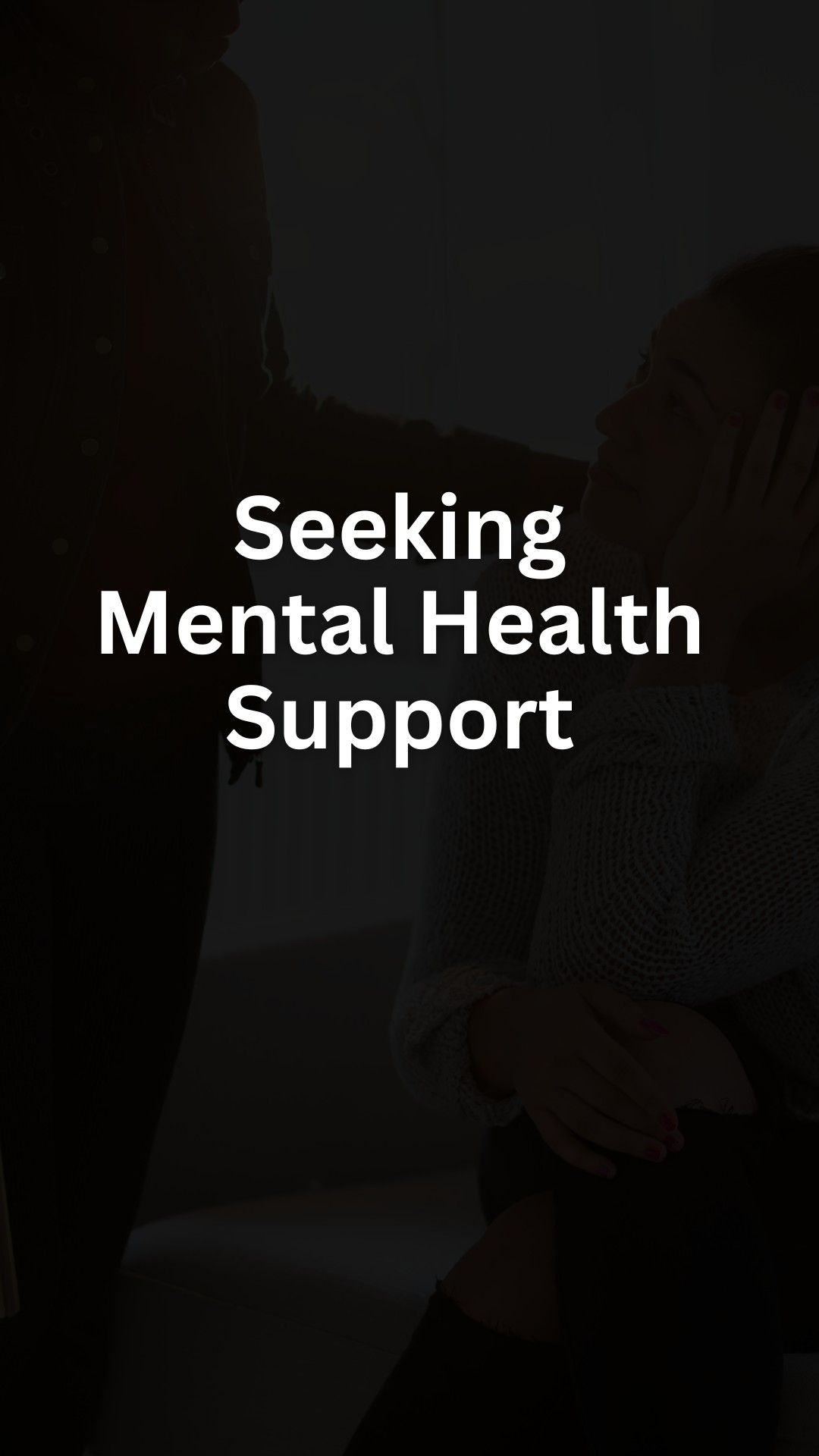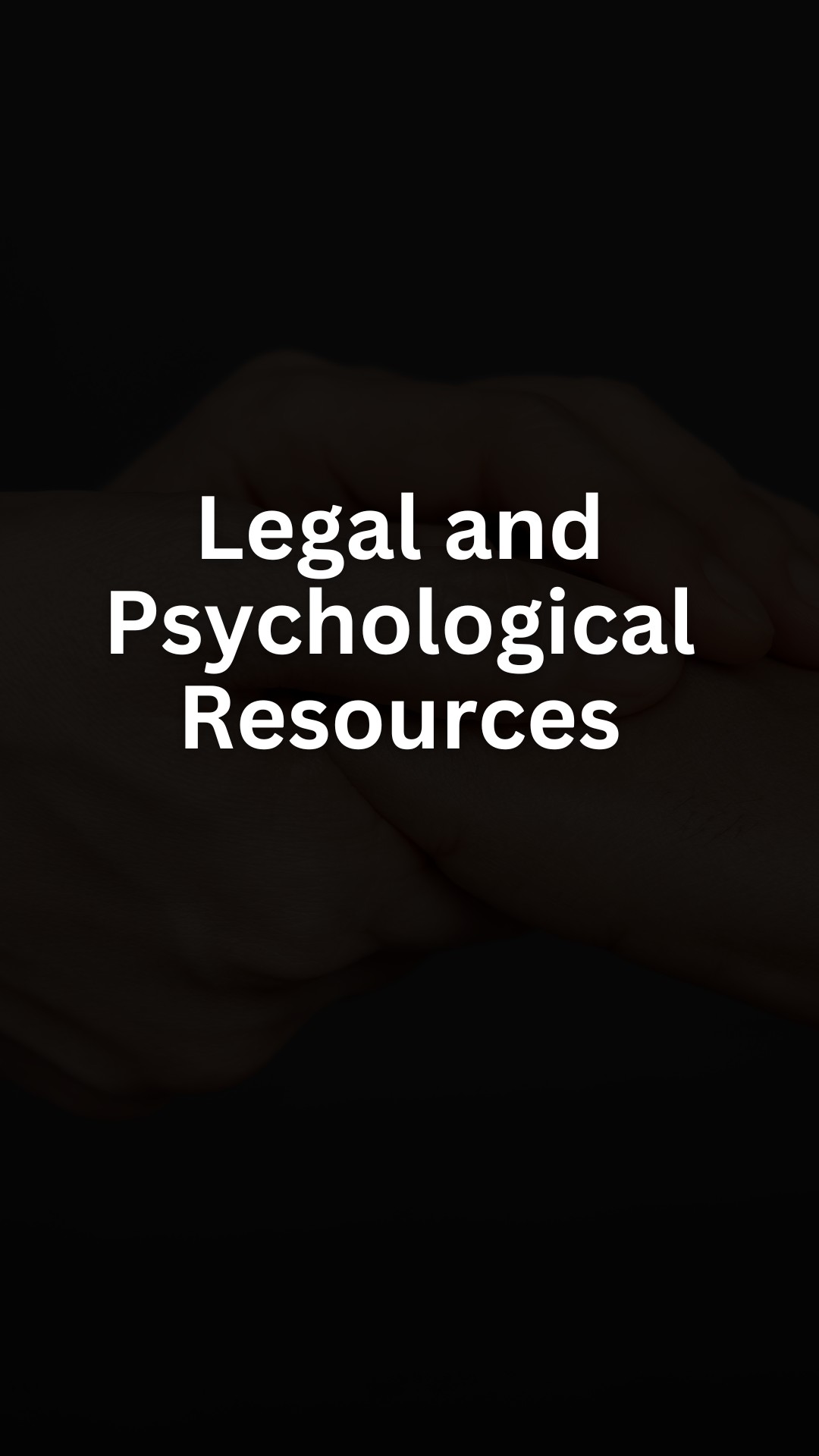Divorce can be one of the most challenging times in a person’s life. It’s not just a legal process; it’s an emotional rollercoaster that impacts your mental well-being.
Getting proper mental health support during divorce can make all the difference in how you cope and recover.
Coping with divorce means handling a lot of emotions, from sadness to anger to relief. These feelings can be overwhelming and difficult to manage on your own.
Finding the right support can guide you through this tough time, helping you to stay strong mentally and emotionally.
You are not alone in this journey. Many people have faced similar challenges and found ways to heal and grow.
This article will share practical tips and resources to help you navigate your divorce with the support you need.
Understanding the Divorce Process

The divorce process involves legal steps, choosing the right lawyer, and considering mediation options. Each step plays a crucial role in reaching a fair resolution.
Legal Considerations
When starting a divorce, you need to understand property laws, custody issues, and support obligations.
The court divides marital assets and debts, determining who gets what.
If you have children, custody and visitation rights need to be settled. Courts look at the best interests of the child.
Child support and spousal support (alimony) are also important parts. You might need to disclose financial information, including income, assets, and debts to ensure fair support.
Finding a Lawyer
Choosing the right lawyer helps navigate the complex legal process. Look for a lawyer specializing in family law.
Ask friends or consult online reviews for recommendations.
Set up meetings with a few lawyers before deciding. Make sure you feel comfortable and understood.
Discuss fees and payment plans. Ask about their experience with cases similar to yours.
Good communication is key, so make sure they answer your questions clearly.
Divorce Mediation
Divorce mediation is an option to consider for resolving disputes. In mediation, a neutral third party helps couples negotiate agreements.
This can lead to less conflict and lower costs compared to court battles.
Mediation can cover many issues: property division, child custody, and support.
It encourages cooperation and allows for creative solutions tailored to your situation.
While not all cases are suitable for mediation, it offers a more private and flexible way to resolve differences.
Emotional Stages of Divorce

Going through a divorce can be an emotional rollercoaster. These stages can guide you in understanding what you might experience: denial and isolation, anger, bargaining, depression, and acceptance.
Denial and Isolation
At first, you might find it hard to accept that your marriage is ending. This is called denial.
You might hope that it’s just a phase and that things will get better.
During this stage, you may isolate yourself from friends and family. You might not want to talk about what’s happening.
This can make you feel alone and misunderstood.
It’s important to recognize that this stage is temporary and reaching out to loved ones can be helpful.
Anger
Anger usually follows denial. You might feel frustrated and resentful toward your spouse or yourself.
This stage is often filled with questions like “Why is this happening to me?” and “Why didn’t we work harder?”
Anger can also be directed at others involved, such as family members or even lawyers.
You might experience physical symptoms like headaches or trouble sleeping.
Finding healthy ways to express your anger, such as talking to a therapist or engaging in physical activity, can help.
Bargaining
In the bargaining stage, you might start to think about ways to save the marriage.
You may promise to change or try to convince your spouse to stay.
This can include making deals with yourself or higher powers in hopes of reversing the situation.
Bargaining is a way to gain control and delay the pain of loss.
It’s common during this stage to revisit past decisions and wish things had been different.
Depression
When reality sets in, you might experience deep sadness. This is the depression stage.
You may feel overwhelmed and hopeless. Simple tasks can feel exhausting, and you may lose interest in activities you once enjoyed.
It’s crucial to acknowledge these feelings and seek support, whether through friends, family, or professional help.
Remember, it’s okay to feel this way and it’s part of the healing process.
Acceptance
Acceptance is when you start to come to terms with the end of your marriage. It doesn’t mean you are happy about it, but you begin to find ways to move forward.
You start planning for the future and look for new opportunities.
This stage brings a sense of peace and resolution. Building a new routine and setting goals can help you regain a sense of normalcy and purpose.
Seeking Mental Health Support

Going through a divorce can be tough. Finding the right mental health support can help you cope better.
Individual Therapy
Individual therapy offers one-on-one sessions with a licensed therapist. This can help you talk through your feelings and develop coping strategies.
Therapists can guide you through complex emotions like anger, sadness, or guilt.
They often use techniques like cognitive-behavioral therapy (CBT) to help you change negative thought patterns.
Sessions are usually private and confidential, so you can feel safe sharing your thoughts.
It’s important to find a therapist you feel comfortable with. Check their credentials and ask about their experience with divorce issues.
Regular sessions can provide a space to process your emotions and plan for the future.
Support Groups
Support groups connect you with others going through similar experiences. Meeting people who understand what you’re going through can be very comforting.
These groups can be found in community centers, churches, or online.
Facilitators, often experienced in dealing with divorce-related issues, guide the discussions.
Sharing your story and hearing others’ can reduce feelings of isolation.
Groups vary—some are open, welcoming new members anytime, while others are closed and structured.
Choose one that fits your schedule and comfort level. In these groups, you’ll find emotional support, practical advice, and a sense of community.
Online Resources
Online resources offer flexibility and accessibility. Websites, forums, and apps provide tools to help manage your mental health from the comfort of your home.
Websites like Psychology Today can help you find therapists.
Forums provide anonymous spaces to share and get advice.
Apps like BetterHelp offer online therapy sessions, making it easier to fit into your schedule.
Online resources can include articles, videos, and exercises to help you understand your emotions and develop coping strategies.
They are available 24/7, offering support whenever you need it.
Self-Care Strategies During Divorce

Taking care of your well-being during a divorce is crucial. Focusing on your physical health, maintaining social connections, and engaging in hobbies can help you navigate this challenging time.
Physical Health
Exercise and a balanced diet are key to keeping your body strong and your mind clear.
Aim for at least 30 minutes of physical activity each day. Walking, running, or even dancing can lift your spirits and ease anxiety.
Eating nutritious food supports your energy levels. Include fruits, vegetables, whole grains, and lean proteins.
Avoid excessive sugar and caffeine, as they can cause mood swings.
Sleep is also important. Try to get 7-9 hours of sleep each night.
Create a calming bedtime routine to improve sleep quality.
Social Connections
Connecting with friends and family provides emotional support and reduces feelings of isolation.
Spend time with people who uplift you. Whether it’s a coffee chat or a phone call, these interactions are valuable.
Support groups can also be helpful. Sharing experiences with others going through a divorce can provide comfort and practical advice.
Look for local meet-ups or online communities where you can express yourself freely.
Don’t hesitate to seek professional help. Talking to a therapist can give you tools to manage stress and emotions effectively.
Hobbies and Interests
Engaging in activities you enjoy can be a great escape and a source of joy.
Hobbies help distract your mind and offer a sense of normalcy. Whether it’s reading, painting, gardening, or hiking, find something that brings you happiness.
Trying new activities can also be exciting. Take a cooking class, join a book club, or start a new sport. This can lead to new skills and friendships.
Dedicate time each week to your interests. It’s important to invest in yourself and your passions, even during tough times.
Handling Financial Changes

Navigating financial changes after a divorce can be challenging. It’s important to restructure your budget and manage any alimony or child support payments effectively. Here are some specific steps to help guide you through this transition.
Budgeting Post-Divorce
Creating a new budget is a crucial step. Start by listing all your monthly income and expenses. Some common categories include:
- Housing costs: Rent or mortgage, utilities.
- Transportation: Car payments, gas, public transit.
- Groceries and food: Grocery shopping, dining out.
- Insurance: Health, car, life.
- Entertainment and subscriptions: Streaming services, hobbies.
- Debt payments: Credit cards, personal loans.
Track your spending for a few months to see where you might need to adjust. Use budgeting tools or apps to help stay organized. Set aside savings for emergencies and future goals.
Managing Alimony and Child Support
If you receive alimony or child support, understand the exact amounts and payment schedules.
Keep records of all payments received or made.
If you pay alimony or child support, ensure timely payments to avoid legal issues.
Communicate with your ex-spouse about changes in financial circumstances that may affect payments.
Consult a legal advisor if adjustments are necessary.
Plan your budget considering these payments and make sure to accommodate any unexpected expenses.
Co-Parenting and Child Custody

Successfully navigating co-parenting and child custody after divorce requires effective communication and a detailed parenting plan. These strategies help ensure the well-being of your children and create a stable environment.
Communication Strategies
Effective communication is crucial for co-parenting. You need to be clear and consistent in your interactions.
Use respectful language, and listen to each other’s concerns. Setting up regular check-ins can help keep both parties informed.
Consider using digital tools. Apps like OurFamilyWizard or Google Calendar can help manage schedules and share important information.
Keep your messages focused on the children, avoiding personal conflicts.
Tips for communication:
- Stay respectful: Avoid blame and focus on solutions.
- Be consistent: Regular updates help maintain stability.
- Use tools: Apps and calendars can help organize and share information.
Creating a Parenting Plan
A well-thought-out parenting plan ensures both parents know their roles. It should detail custody arrangements, visitation schedules, holidays, and decision-making responsibilities.
Include specifics about school, health care, and extracurricular activities. Make sure both parents agree on how to handle emergencies.
Elements of a parenting plan:
- Schedule: Clear calendar of when each parent has the children.
- Decisions: Who makes decisions about health, education, etc.
- Holidays: Plan for special occasions and vacations.
Rebuilding After Divorce

Starting fresh after a divorce can be challenging, but it also brings new opportunities. You might consider dating again or setting new goals.
Entering the Dating World
After a divorce, you might think about finding a new partner. It’s important to take things slowly.
Give yourself time to heal and understand what you want in a relationship. Try to avoid jumping into a new relationship just to fill a void.
Taking Care of Yourself: Focus on self-care. Make sure you are emotionally ready before starting to date. Being happy with yourself first can make a big difference.
Meeting New People: There are many ways to meet new people.
You can try online dating apps or join clubs and groups that match your interests.
Remember, it’s okay if it takes time to find someone special.
Pursuing New Goals
Divorce can be a chance to pursue goals you put on hold.
Think about what you want to achieve in your personal and professional life.
Setting Clear Goals:
Start by setting clear, achievable goals. Write them down.
It can be something simple like reading more books or something big like changing careers.
Taking Action:
Break your goals into smaller steps.
For example, if you want to further your education, start by looking up courses or schools.
Celebrate each small success along the way.
Focus on what makes you happy and gives you a sense of purpose.
Divorce Impact on Mental Health

Divorce can heavily affect your mental health, causing stress, anxiety, and feelings of grief and loss. Each of these emotional responses requires different types of support and coping strategies.
Stress and Anxiety
Going through a divorce can make you feel stressed and anxious.
You might worry about legal issues, financial changes, and changes to your daily life.
These stresses can lead to physical symptoms like headaches, fatigue, and trouble sleeping.
Managing this stress is crucial.
For example, exercise helps reduce stress and improve mood.
Meditation and deep breathing exercises can also be effective.
Talking to a mental health professional can provide tailored strategies to cope with anxiety.
Support groups are another valuable resource.
They allow you to share your experiences and hear from others who are going through similar situations. This shared understanding can reduce feelings of isolation.
Grief and Loss
Divorce often brings a sense of grief and loss.
You might grieve the end of the relationship and the plans you made for the future.
This can be similar to mourning the death of a loved one.
Allow yourself to feel these emotions. Bottling them up can lead to more serious mental health issues.
Journaling your feelings can help you process them. Writing about your experiences can give you clarity and a sense of release.
Connecting with close friends and family is also important.
They can provide emotional support and help you feel less alone during this tough time.
Don’t hesitate to seek help from a therapist who specializes in grief counseling. They can offer guidance tailored to your situation.
Supporting Children Through Divorce

Divorce is tough on everyone, especially children. It’s important to talk to them honestly and consider therapy to help them cope with their feelings.
Discussing Divorce with Children
When discussing divorce with your children, be honest yet gentle. Use age-appropriate language.
Explain that it’s not their fault. Both parents should ideally be present during the conversation to show unity.
You might say, “We both love you very much, but we’ve decided to live in separate houses.”
Key tips:
- Reassure them of your love.
- Encourage questions and answer honestly.
- Avoid blaming each other.
Be prepared for a range of emotions and give them time to process the information.
Regularly check in with them to see how they’re feeling and if they have more questions.
Children’s Therapy Options
Children may benefit from therapy to navigate their emotions.
Look for therapists who specialize in child psychology or family issues.
Therapy can offer a safe space for them to express their feelings and learn coping strategies.
Types of therapy:
- Play therapy: Works well for younger children to express emotions through play.
- Talk therapy: Great for older children and teens to discuss their feelings.
- Family therapy: Involves both parents and children to improve communication and resolve issues.
Check with schools or local community centers for recommendations.
You can also consult your child’s pediatrician for advice.
Overcoming Stigma and Social Challenges

Dealing with divorce can be tough, especially when you face social stigma. Many people feel judged or misunderstood during this time. It’s important to know that you’re not alone.
Talking about it helps. Open up to friends, family, or a mental health professional.
Sharing your feelings can reduce the weight of judgment you may feel.
Create a support network. Surround yourself with people who listen and care.
This support can help counter negative perceptions from others.
Consider joining support groups.
Connecting with others who have gone through similar experiences can offer comfort and advice.
These groups can also provide a sense of belonging.
Be aware of self-stigma, too. Sometimes, we internalize negative beliefs about ourselves.
Practice self-compassion and remember that divorce does not define you.
It’s okay to set boundaries.
Protect your mental health by limiting interactions with those who judge or criticize your situation.
Seek professional help if needed.
Therapists and counselors can provide strategies to cope with stigma and social challenges.
Educate others when you feel comfortable.
Sharing reliable information about divorce and mental health can help change negative perceptions.
Take care of your physical and emotional well-being.
Regular exercise, healthy eating, and mindfulness practices can boost your resilience.
Legal and Psychological Resources

When facing divorce, accessing the right legal and psychological resources can be essential. These resources provide support through the legal process and help maintain mental health.
Legal Aid Services
Legal aid services offer crucial support by providing information, advice, and representation.
You can find low-cost or free help from non-profit organizations and legal clinics.
These services often help with filing documents, negotiating terms, and court representation.
Public defenders may also assist if you cannot afford a lawyer.
Online legal platforms provide resources and guidance to help you understand your rights.
Access to such aid can ease some of the financial strain during a divorce.
Mental Health Providers
Mental health providers focus on emotional well-being during a divorce.
These professionals, like therapists and counselors, offer strategies to manage stress, anxiety, and depression.
Seeking support from support groups provides a community of people going through similar experiences.
Many mental health providers offer sliding scale fees based on income, making therapy more accessible.
Some employers also provide Employee Assistance Programs (EAPs) that cover mental health services.
Regular sessions with a mental health professional can improve your coping skills during the stressful process of divorce.
What are the potential mental health impacts of going through a divorce?
Divorce can lead to anxiety, depression, and low self-esteem. Some might also face feelings of isolation.
Make sure to seek support to manage these impacts effectively.